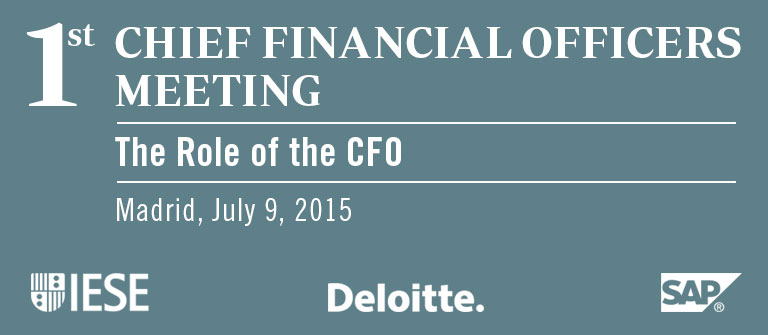
1st Chief Financial Officers Meeting

Introduction
Over the past few years, Chief Financial Officers (CFOs) have come to play an increasingly crucial role in their organizations. The 2008 financial crisis was certainly the tipping point in the expansion of CFOs’ responsibilities, but their importance dates farther back. CFOs have been key figures in the sphere of corporate governance and audit and control committees for decades. But their prominence has largely grown due to the demands for increased transparency and communication in financial operations from shareholders and investment groups, and in relations with investors and regulators.
Financial managers are increasingly sought after for their analytical skills and overall vision and to provide guidance for an organization’s essential decision making. Strategy cannot be implemented based exclusively on financial grounds. However, financial managers play a more important role than mere auditing. Their global understanding and vision are essential to the company.
The job of financial managers in businesses is therefore not strictly limited to auditing, control, cash flow and finance. They must also take on a more strategic, big-picture role without losing sight of the fact that the CFO’s chief responsibility continues to be guaranteeing the company’s sustainable growth.
Against this backdrop of challenges and changes, IESE’s 1st Financial Management Industry Meeting, jointly organized by Deloitte and SAP, will provide an opportunity for business experts and academics to reflect on and discuss questions of interest and concern to financial managers, as well as the long-term trends that can be gleaned from the current scenario.
This 1st Chief Financial Officers Meeting is the product of the IESE CFO Initiative, a series of industry-specific roundtables for CFOs from businesses in the same industry as well as IESE Finance professors and experts from Deloitte and SAP. The roundtables held in the aviation, tourism, retail, infrastructure and pharmacy industries brought together a total of 10 CFOs who helped identify the current and future questions and issues shaping this meeting’s agenda.